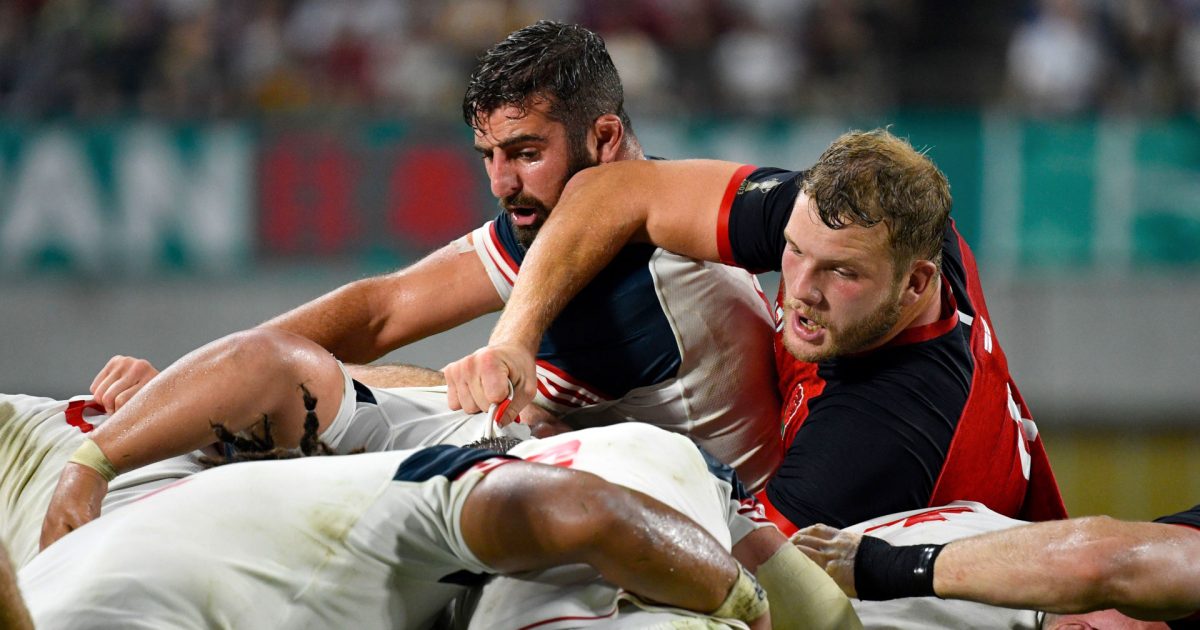'That weighs heavily on my mind... it scares the s*** out of me'

The commitment of the Oxford University men’s rugby team to help towards a better future for the next generation of players has been praised after they pledged to donate their brains to the Concussion Legacy Project.
Ahead of Saturday’s varsity match at Twickenham, the Oxford players have followed in the footsteps of England World Cup winner Steve Thompson by offering to give their brains to research into chronic traumatic encephalopathy (CTE) and other consequences of brain trauma in contact sport.
The Concussion Legacy Project brain bank was only launched in September through a partnership between Concussion Legacy Foundation UK and the Jeff Astle Foundation but this pledge represents the third major donation to help in the battle to prevent former sporting athletes being diagnosed with dementia and other neurodegenerative diseases.
USA international Nick Civetta is part of the Oxford squad and while the 32-year-old is in the latter stages of his career, the majority of his team-mates are only starting out, and he has talked up their understanding of why this is such an important issue.
“Neurodegenerative disease in contact sport is something that weighs heavily on my mind and should be in the back of the mind of every parent or player of a contact sport,” Civetta told the PA news agency.
“The synergy of us being rugby players, also scholars and people who are concerned about their brains functioning and brain health later in life, it seemed like a no-brainer.
“Also these are uncomfortable conversations to have with your team-mates, especially the younger ones who are starting out in their rugby career but the way the guys have responded to the opportunity to contribute to an organisation with such important goals for our sport was really impressive.
“I was really impressed with the way they were able to compartment analyse the heavier aspect of what CLF does and their commitment has been really great.”
Civetta, who played at the 2019 World Cup and faced England at Twickenham last summer, has been encouraged by the work of CLF UK, who aim to find a cure for CTE by 2040.
It has long been felt America are ahead of the UK in efforts to prevent retired contact-sport players suffering dementia, which is largely down to the rise in current and former NFL players who reported traumatic brain injuries at the start of the 21st century.
As a result concussion protocols for American Football were brought in for 2009 but across the Atlantic other sports and countries have been slower to react until recent years.
Oxford lock Civetta added: “The fact the US got started on this is part and parcel with the scary things that have been happening to American Football players over the last 20 to 30 years.
“With rugby being almost into its 30th year as a professional sport, you are starting to get a first generation of guys who were professional rugby players, now in their forties and fifties, who are potentially starting to see symptoms and that scares the s*** out of me!
“It should certainly be cause for more money to go into research for this sort of thing.”
While Civetta has only experienced concussion on three or four occasions during a career that has seen him play domestically in France, Italy and England, he has seen the devastating impact a lack of understanding on the issue can have.
The former Newcastle and Doncaster forward feels positive steps are being made in his sport which, coupled with the work of the likes of CLF, will aim to help the next generation of players enjoy a brighter post-retirement future.
“Hopefully in the next five to 10 years we have a way out of this disease whether it is with a cure or through the ability to diagnose really early and find treatment,” he said before Saturday’s 150th anniversary of the Oxford vs Cambridge varsity match.
“It is everywhere and has touched probably every rugby player through their friends and team-mates over the years so it is scary.
The entire Oxford rugby team are donating their brains for concussion research ✍️
Nick Civetta who is part of the Oxford squad explains why this is such an important issue. pic.twitter.com/cKGASrdQvn
— RugbyPass (@RugbyPass) April 2, 2022
“You can’t avoid it. I think I have been fairly lucky and suffered three, maybe four minor concussions over the course of my career.
“But I have been on the field with guys who have got concussed, stayed on, got concussed again and ended up with second-impact syndrome, brain bleeds and having to get a quarter of their skull removed with that being the end of their career.
“It is pervasive, it is everywhere and the risk that comes part and parcel with the sport but we need to design the sport to accommodate for the best outcome for people’s brain health right?
“I think that is a big part of what CLF is aiming at and a big part of what World Rugby is aiming at with their cutting-edge concussion protocols which will hopefully continue to improve.”
























































































